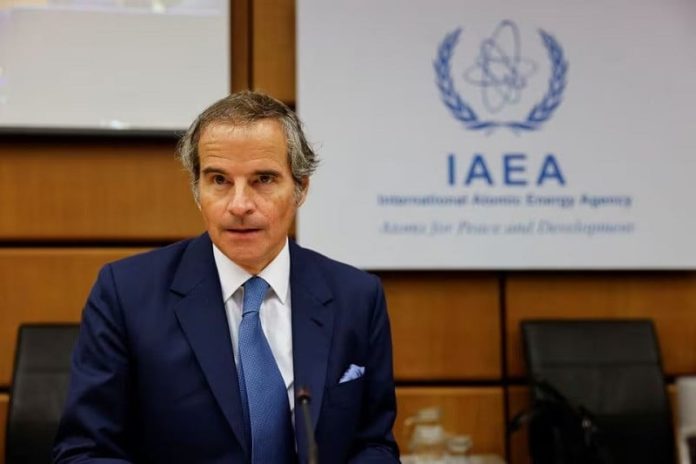The head of the United Nations nuclear watchdog, Mariano Grossi, confirmed he will go to Iran in the coming days for talks on the country’s nuclear programme.
Grossi, director general of the International Atomic Energy Agency (IAEA), will hold high-level meetings with the Iranian government and technical discussions on all aspects related to the joint statement agreed with Iran in March 2023.
It is essential that we make substantive progress in the implementation of the joint statement agreed with Iran in March 2023. My visit to Tehran will be very important in that regard, Grossi said.
The statement required Iran at that time to resolve issues around sites for which inspectors had questions about possible undeclared nuclear activities and to authorise the IAEA to carry out further relevant verification and monitoring activities. The visit could encourage steps forward in co-operation between the IAEA and Iran to expand inspections of the Islamic Republic’s fast-growing nuclear programme.
Grossi’s visit comes against a backdrop of broader tensions gripping the Middle East over the Israel-Hamas war, as well as the recent flare-up of hostilities between Hezbollah and Israel. Of particular significance plays the uncertainty over how US President-elect Donald Trump will approach Iran after his inauguration in January. Some foresee a full-blown war between Tehran and Washington, especially as other conflicts rage in the region. Others hope Trump may engage in unexpected diplomacy, as he did with North Korea.
Grossi warned, however, that Iran has enough uranium enriched to near-weapons-grade levels to make several nuclear bombs if it chose to do so. He acknowledged that the UN agency could not guarantee that none of Iran’s centrifuges had been removed for clandestine enrichment.
Iran’s 2015 nuclear agreement with world powers, which placed restrictions on its nuclear programme, fell after the Trump administration pulled the US out of the agreement in 2018, forcing Iran to abandon all restrictions the agreement placed on its programme and enrich uranium to up to 60 per cent purity. Thus, this is just a short technical step away from the weapons-grade level of 90 per cent. Roughly 42 kilograms of uranium enriched to 60 per cent is the amount at which a single atomic weapon is theoretically possible, as defined by the IAEA.
The meetings in Tehran will follow up on Grossi’s talks with Iranian Foreign Minister Abbas Araghchi on the sidelines of the UN General Assembly in September.
